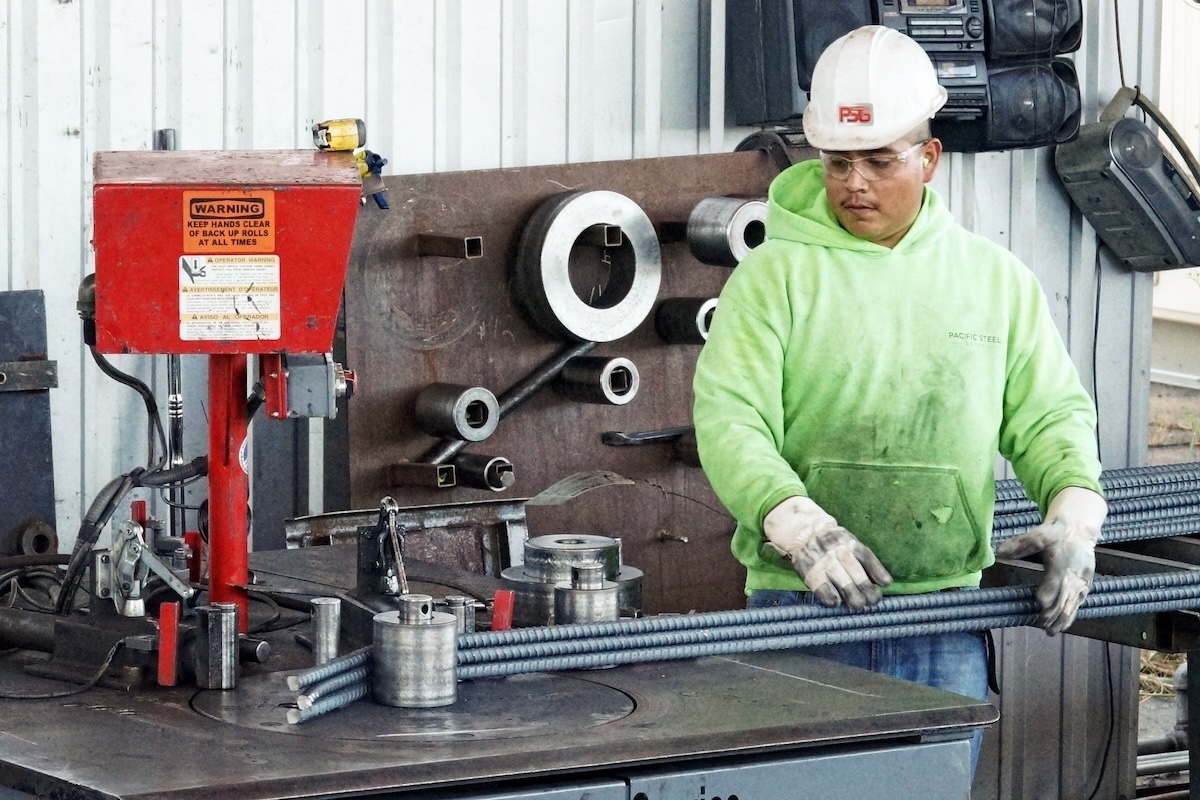Greetings Agents of Impact!
In today’s Brief:
- Disinformation risk mitigation: Governance and guardrails
- Remote reproductive health services
- Mobilizing capital for adaptation in emerging markets
Featured: Disinformation Risk
Governance matters as social media platforms navigate – and shape – the new operating environment. Who gets to say what, and who decides, are among the most fundamental questions in a democracy. They’re increasingly business questions as well, and not only for platforms like Mark Zuckerberg’s Meta, Elon Musk’s X, or even Bluesky, the upstart competitor that is said to be near a fresh round of funding led by Bain Capital Ventures that would value it at around $700 million. “Now is the time to invest in governance,” the Ford Foundation’s Margot Brandenburg argues in a guest post on ImpactAlpha. This week’s announcement from Zuckerberg that Meta will ditch third-party fact-checking on Facebook and Instagram makes stark the social stakes in the platforms’ policymaking processes. Free speech is inarguably essential to free markets, but deliberate disinformation is just as clearly a systemic risk. Spreading misinformation “is actually a reasonably good strategy to increase revenues,” Sara Murphy of The Shareholder Commons said on an ImpactAlpha Agents of Impact Call. “But it is not good for the rest of your portfolio.”
- Political winds. Expect a flood of hate speech and disinformation as Meta dismantles its fact-checking operation, warn experts and advocates. The social media giant will adopt a community policing model akin to Musk’s X and will roll back restrictions on “topics like immigration, gender identity and gender that are the subject of frequent political discourse and debate,” according to Meta’s newly installed global affairs chief, Republican lobbyist Joel Kaplan. The company’s updated Hateful Conduct policy means the platform will now explicitly allow comments that characterize women “as household objects or property,” for example, or that label gender identities or sexual orientations as “mental illness or abnormality.” Meta – which pitched in $1 million to President-elect Donald Trump’s inauguration and added Trump ally Dana White of Ultimate Fighting Championship to its board – acknowledged the shifting political winds. “The recent elections also feel like a cultural tipping point towards, once again, prioritizing speech,” Zuckerberg said. An alternative view, expressed (on X) by the nonprofit consumer advocacy group Public Citizen: “This is Meta shamelessly saying that the truth doesn’t matter.”
- Plea from a BlueSky user. The free-for-all that resulted from Musk’s $44 billion purchase of Twitter in 2022 has sent many X users fleeing to upstart competitor BlueSky. Ford Foundation’s Brandenburg made the switch (as has ImpactAlpha). BlueSky, she notes in her guest post, has prioritized positive user experiences over clickbait-driven algorithms or advertisements. Putting the user community’s well-being at the heart of decisionmaking is “a principle of ‘stakeholder capitalism’ that, if championed, can make BlueSky a model for responsible platforms and protect its longevity,” Brandenburg writes. The company’s incorporation as a Public Benefit Corporation is a good first step, she says. “Arguably the most important thing BlueSky can do to successfully navigate these waters is to invest in governance mechanisms that protect its mission,” says Brandenburg.
- Trustworthy models. BlueSky’s mission will surely be tested as it faces investor pressure to monetize and grow. Additional governance mechanisms have been adopted by other pioneers. Anthropic, for example, codified its commitment to AI safety by creating a special class of shares controlled by a Long-Term Benefit Trust that has the right to appoint a growing share of its directors over time. Patagonia adopted a “steward ownership model” by forming a perpetual purpose trust owned by a nonprofit organization. Such steps could help Bluesky build and maintain trust from its millions of new customers, Brandenburg says. “After all, users don’t have to look hard to find examples of what happens when a company does not have adequate guardrails in place.”
- Keep reading, “Plea from a BlueSky user: Now is the time to invest in governance,” by Margot Brandenburg on ImpactAlpha. (Disclosure: Ford Foundation is an investor in ImpactAlpha.)
Dealflow: Women’s Health
Twentyeight Health raises $10 million for women’s reproductive and sexual health care. Twentyeight Health, a telehealth startup for women in underserved communities in the US, has seen a 52% jump in demand since the November election. President-elect Trump, who helped set the stage to overturn Roe v. Wade, is under pressure to go even further to restrict reproductive choices. Sales for emergency contraceptives on Twentyeight’s website doubled. “At an inflection point for women’s health, we are prepared to meet the moment by continuing to invest in our user experience and expanding our reach nationwide to deliver a real solution to a real problem,” said Bruno Van Tuykom, who founded Twentyeight Health with Amy Fan in 2018. The New York-based company employs a team of licensed doctors and nurse practitioners to provide consultations on comprehensive family planning, maternity and sexual health, and other women’s health-related issues.
- Women’s health deserts. Twentyeight Health offers home delivery of birth control and abortion pills, herpes treatments, pregnancy tests and menstrual pads and tampons. Such products and services are inaccessible to roughly 19 million women living in care deserts, said Tuykom. The new financing round, led by health tech investor Seae Ventures, “will bridge this gap, helping women receive the essential care they need, regardless of geography, income, race, age or coverage status,” he added. Other backers in the Series A round include Impact America Fund, the Social Entrepreneurs’ Fund, RH Capital, Impact Engine, Gratitude Railroad and Townhall Ventures.
- Inclusive care model. Twentyeight serves about 100,000 women in 43 states. Two in five customers don’t have access to a primary care provider outside of the company’s telehealth platform. Three in five identify as people of color and half make less than $20,000 per year. The company has partnered with Medicare insurers, such as Aetna, AmeriHealth and Molina, to deliver care to patients without co-pays or costs for prescriptions.
- Check it out.
Wavemaker Impact backs Indonesia’s HiFeed to reduce methane emissions from cattle. A single cow releases up to 260 pounds of methane per year, simply by eating and digesting. That adds up to more than 115 million tons of the potent greenhouse gas from cows around the world. HiFeed makes easy-to-digest cattle feed-pellets that reduce enteric fermentation, the process that produces methane in ruminants such as cows. The company also captures carbon, which is utilized in feed manufacturing. Wavemaker Impact, the venture building arm of climatech investor Wavemaker Partners, led HiFeed’s pre-seed round. Wavemaker had raised capital from British International Investment in 2023 for its debut fund, to back companies it believes will cut 10% of global emissions by 2035. Methane accounts for half of the planet’s 1.1-degree Celsius global temperature rise since pre-Industrial times.
Dealflow overflow. Investment news crossing our desks:
- The US Department of Energy’s Loan Programs Office extended a conditional loan guarantee of up to $1.8 billion to Arizona Public Service. The largest electric utility in Arizona will use the commitment to accelerate a shift to renewable energy and implement a Virtual Power Plant.
- Cameroon’s Afriland First Bank, which provides financing for small businesses, secured a $60 million loan from the International Finance Corp. and its lending partners. The loan is backstopped by a $3 million guarantee from the International Development Association. (Business in Cameroon)
- Alta Resource scored $5.1 million in seed financing, co-led by DCVC and Voyager Ventures, for its lab-designed proteins that act as “microbots” that extract rare earth elements and critical minerals from electronic waste. (Alta Resource)
- A consortium that includes British International Investment, Tanmiya Capital Ventures and SPE Capital acquired Tamweely, a microfinance institution that provides financial services to small enterprises and unbanked individuals in Egypt. (SPE Capital)
Signals: Catalytic Capital
Blend, derisk, scale, repeat: BlueOrchard’s recipe for moving capital to emerging markets (video). Institutional capital hasn’t yet figured out how to invest at scale in climate adaptation strategies. That’s why crucially needed finance for adaptation is in such short supply. The capital gap is even wider in emerging markets. BlueOrchard believes it can attract institutional and commercial investors to climate adaptation interventions in some of the world’s most remote, low-income and climate-vulnerable communities. The firm has done it before. The Switzerland-based emerging markets impact investor has a 25-year track record as a specialist investor in microfinance and private debt. Today it has more than $5 billion in assets under management, $4 billion of which is commercial capital. “We have done that with blended-finance structures, where we combine different types of investors in different types of risk capital,” says Maria Teresa Zappia, BlueOrchard’s chief impact and blended finance officer who spoke with ImpactAlpha on the sidelines of the GIIN Investor Forum in Amsterdam in October. “With a 25 year track record, we have enough performance to show what the asset class can bring in, [and that] there is no trade off between impact and financial performance.”
- Advancing adaptation. That track record of raising – and returning – capital attracted interest from the UK-based asset management firm Schroders, which acquired BlueOrchard in 2019. Now, Blue Orchard is seeking to replicate the success of its microfinance strategy for climate adaptation. It launched its first InsuResilience Investment Fund in 2017 to make debt and equity investments in companies providing insurance for climate resilience among farmers and other vulnerable communities. It launched a second fund in 2022. “It is a blended finance strategy. It’s a market building strategy. We have developed a market for climate insurance in emerging markets where very often insurance doesn’t even exist,” says Zappia. “The third vintage, we’ll see. We’re very confident that this is an offering that would be interesting to insurers and larger institutional investors.”
- Keep reading and watch the video interview.
Agents of Impact: Follow the Talent
Michelle Arevalo-Carpenter steps down as executive director of content for SOCAP Global. She will focus on her role as founding general partner of IMPAQTO Capital and a consultant at Skoll Foundation… Warburg Pincus promotes Leela Ramnath to managing director and global head of sustainability strategy… Trillium Asset Management promotes Lisa Hayles to director of sustainability and stakeholder engagement… Principles for Responsible Investment promotes Cambria Allen Ratzlaff to chief officer of responsible investment ecosystems.
Aligned Climate Capital’s founding partner Lawrence Rodman retired at the end of 2024… US SIF appoints Stephanie Cohn Rupp of Veris Wealth Partners as board chair, along with eight new board members, including Boston Trust Walden’s Kimberly Gluck, Nakia Maddox Eubanks of Trillium Asset Management, and Rebecca Adamson of First Peoples Worldwide… Potlikker Capital adds David LeZaks of Food System 6 to its board of directors… Stéphanie Bernier-Monzon, former head of communications at Impak Finance, joins Rally Assets as a communications senior associate.
Upstart Co-Lab is hiring an impact investing coordinator in New York… Toniic seeks a strategic communications director… RSF Social Finance has an opening for a portfolio management senior associate… Intelligent Impact is on the hunt for an operations director… Mission Investors Exchange’s Katheryn Witt will moderate a virtual discussion on Tuesday, Jan. 28 on the potential of the Greenhouse Gas Reduction Fund for impact investments, with Kresge Foundation’s Joe Evans, Krystal Langholz of Climate United, and Marla Bilonick of the National Association for Latino Community Asset Builders.
👉 View (or post) impact investing jobs on ImpactAlpha’s Career Hub.
Thank you for your impact!
– Jan. 9, 2024












